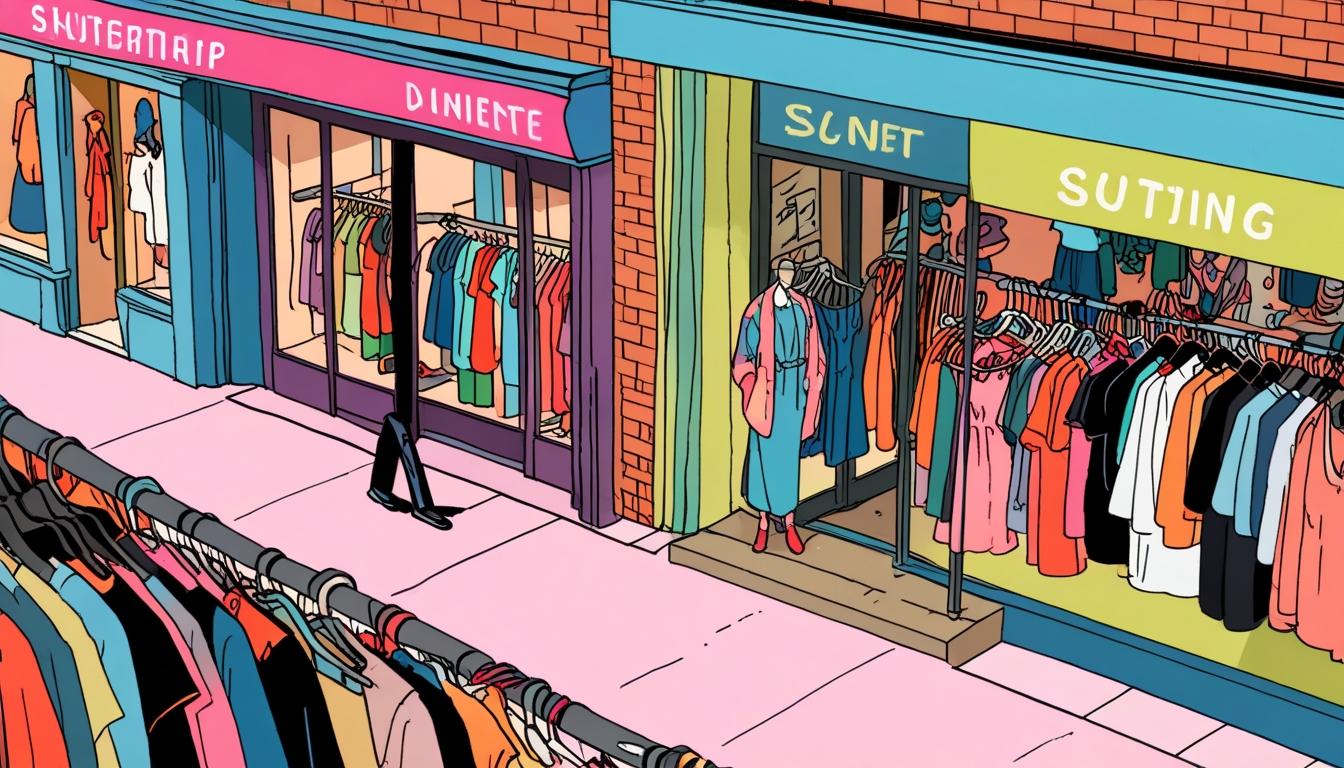UK: The rise of online resale platforms like Vinted and Depop is significantly affecting the performance of charity shops across the UK, leading to steep declines in profits and prompting some charities to close numerous outlets amid changing consumer behaviours and economic pressures.
The emergence of online platforms such as Vinted and Depop is significantly affecting the operations and profitability of charity shops in the UK, according to industry leaders. Barnardo’s, one of the largest children’s charities in the country, reported a dramatic decline in profits at its nearly 600 shops, revealing a staggering 70% drop over the past five years. Lynn Perry, Chief Executive of Barnardo’s, highlighted the compound challenges faced by charity shops, stating, “In the last few years, there have been huge challenges for the UK high street, including increased operating costs for shops and reduced consumer spending, related to the economy and the cost-of-living crisis. As well as this, the rise in online platforms selling pre-loved clothing has impacted on the income of charity shops,” as she spoke to The Mirror.
The Charity Retail Association confirmed this trend, indicating that whilst the volume of items donated remains steady, donors are increasingly reserving higher-quality garments for sale on platforms like Vinted. Robin Osterley, the CEO of the Charity Retail Association, remarked, “There are platforms like Vinted which we believe are having an impact… It is not affecting the quantity of items donated but I think it is affecting the quality,” underscoring the competitive dynamics in the second-hand clothing market.
Scope, another prominent charity, is facing dire financial difficulties and is set to close 77 of its charity shops following a £2.2 million loss in the last two years. This could lead to a staggering reduction of seven in ten of its outlets over the next three years. A survey conducted by The Sunday Mirror on five major charity shop operators, managing nearly 3,000 outlets, illustrated that while sales had increased by 18%, profits decreased dramatically by 40%.
Vinted, originally launched in Lithuania in 2008, has reported explosive growth, being recently valued at over £4 billion. The platform has seen total sales surge from approximately £400 million in 2018 to over £8 billion in 2023, with Vinted Limited’s revenue increasing from £27 million to nearly £500 million over the same period. The platform is now home to an impressive 42 million monthly users across 21 countries.
In comparison, Depop, which is owned by the American retailer Etsy, has also experienced significant revenue growth, climbing from £13 million in 2018 to £71 million in 2023, with market speculation suggesting its annual sales may approach £1 billion. The UK represents nearly a third of Depop’s business whilst the majority is concentrated in North America.
The competitive landscape is further complicated by the presence of eBay, which continues to dominate the online “customer to customer” marketplace, selling nearly £60 billion worth of items in 2023. However, eBay’s revenues in the UK have dwindled for two consecutive years, reflecting a 9% decline from 2021 to £1.3 billion.
In response to the changing marketplace, a spokesperson for Vinted stated, “Both Vinted and charity shops play a critical role in ensuring that every item produced has the longest possible life. For many of our members, making money back from the items they no longer use provides them value, which can make a significant difference in the current cost of living crisis.” Additionally, they indicated that the platform offers charities an avenue to generate funds through sales.
As charity shops adapt to the evolving retail landscape, the influence of digital platforms on their operations and financial viability continues to be a subject of significant interest.
Source: Noah Wire Services




